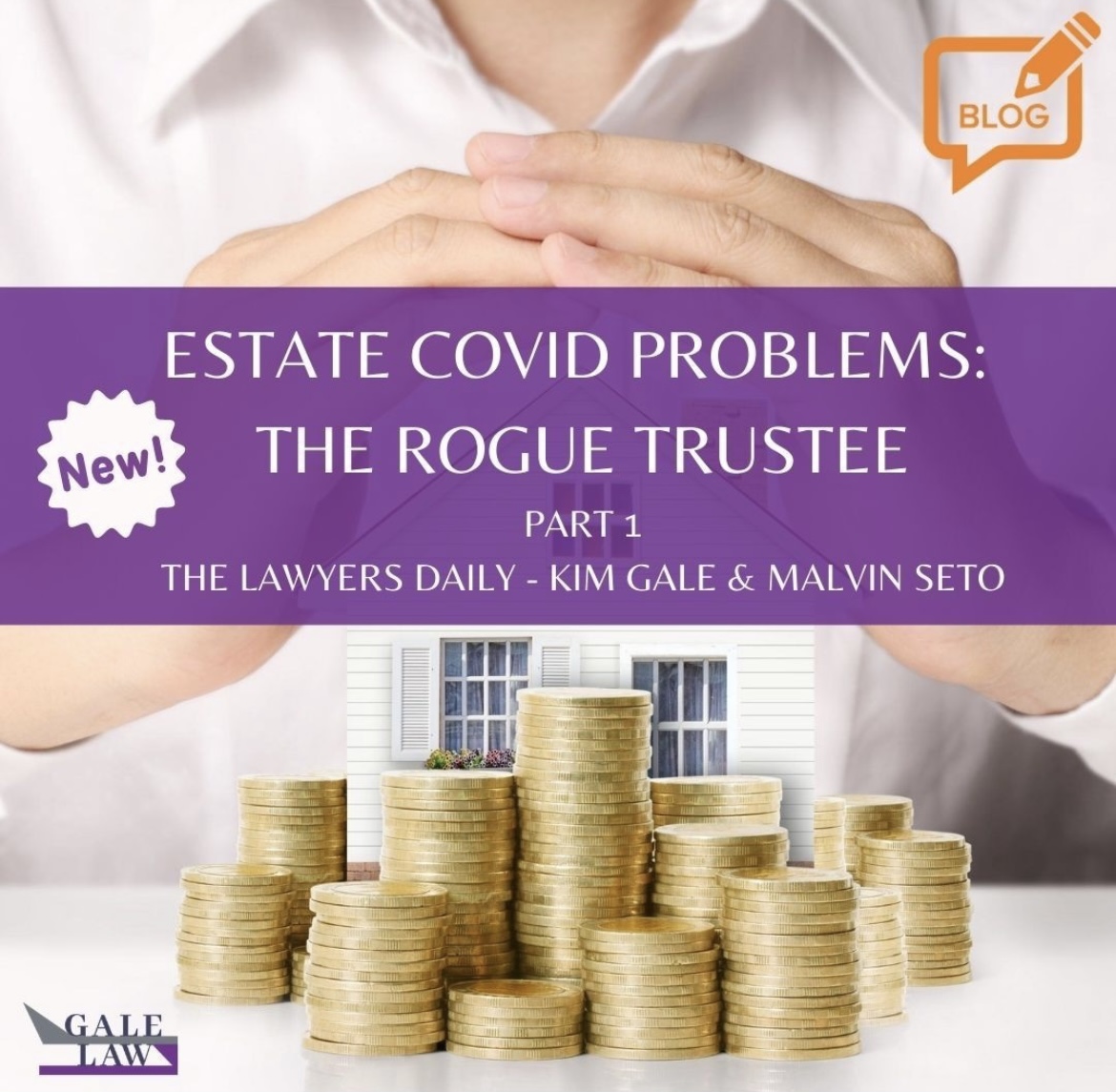
This article was originally published by The Lawyer’s Daily (www.thelawyersdaily.ca), part of LexisNexis Canada Inc.
Estate COVID problems: The Rogue Trustee
A common theme in an administration of any estate is the breakdown of relationships between family members. Sometimes the estate trustee takes it upon themselves to make distributions that are not pursuant to the will or intestacy laws. It could be because they feel that they deserve more money over the other beneficiaries. Whatever the reason, an estate trustee should never endeavour to change the distribution as set out in a will or on intestacy laws without a court order.
Beneficiaries of a will or under intestacy who have not been given their inheritance because of an estate trustee’s conduct have recourse. This series of articles looks to address the problem: “I am a beneficiary of a will but I have not received my gift,” or “what do I do if the estate trustee is not distributing according to the will?”
No probate
If the beneficiary learns that they will not be receiving a gift before the estate trustee has applied for probate, then the beneficiary may file to the court a Rule 75.03 Notice of Objection to the estate trustee’s appointment. Essentially, the beneficiary would object to the estate trustee from obtaining the certificate of appointment because of the estate trustee’s conduct or conflict, which would interfere with them being able to act impartially among all beneficiaries (this is the even-hand rule).
The role of the estate trustee requires the trustee to serve the estate. If the estate trustee is unable to act neutrally and honour the last wishes of the deceased, or the laws of intestacy, then the beneficiary has a strong case to seek the removal of the estate trustee . Just because an estate trustee is a creditor does not mean they cannot act neutrally . Should an estate trustee be deemed by the court to have breached their fiduciary duties, they may be penalized with partially or fully reduced compensation, and in some instances forced to pay back the improper distributions to the estate with interest.
Duty to account
If the estate trustee has been appointed, either they obtained a Certificate of Appointment with or without a will, or were appointed in the will, then they have a duty to account to the beneficiaries. This means that the estate trustee must keep accurate records of the assets and transactions of the estate. The beneficiaries are entitled to see all the monies going in and out of the estate.
If the estate trustee is delaying distribution because they do not want to distribute to a beneficiary, or if they are not reporting anything to a beneficiary, or if a beneficiary suspects that they are not getting what they are owed, then the beneficiary can obtain an order to compel the estate trustee to pass their accounts (Rule 74. l S(h)) . If the beneficiary disagrees with the accounting, then they can file and serve a Notice of Objection to the Accounts (Rule 74.18(7)).
Other options include s. 37 of the Trustee Act, which states that a party may apply for an estate trustee to be removed or Rule 75 . 06 where the beneficiary may apply for the directions of the court.
The bottom line is if someone is a named beneficiary in a will or on intestacy, then they have the right to claim their inheritance.
What is different with COVID?
Luckily, the courts have adapted with the times and are hearing matters via Zoom. Law offices have transitioned to providing services to clients virtually. Though the medium is different, the law remains the law.
More on COVID-era estate law in part two of this series.
